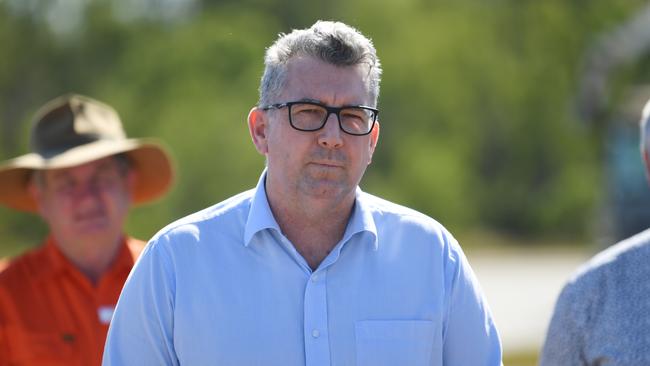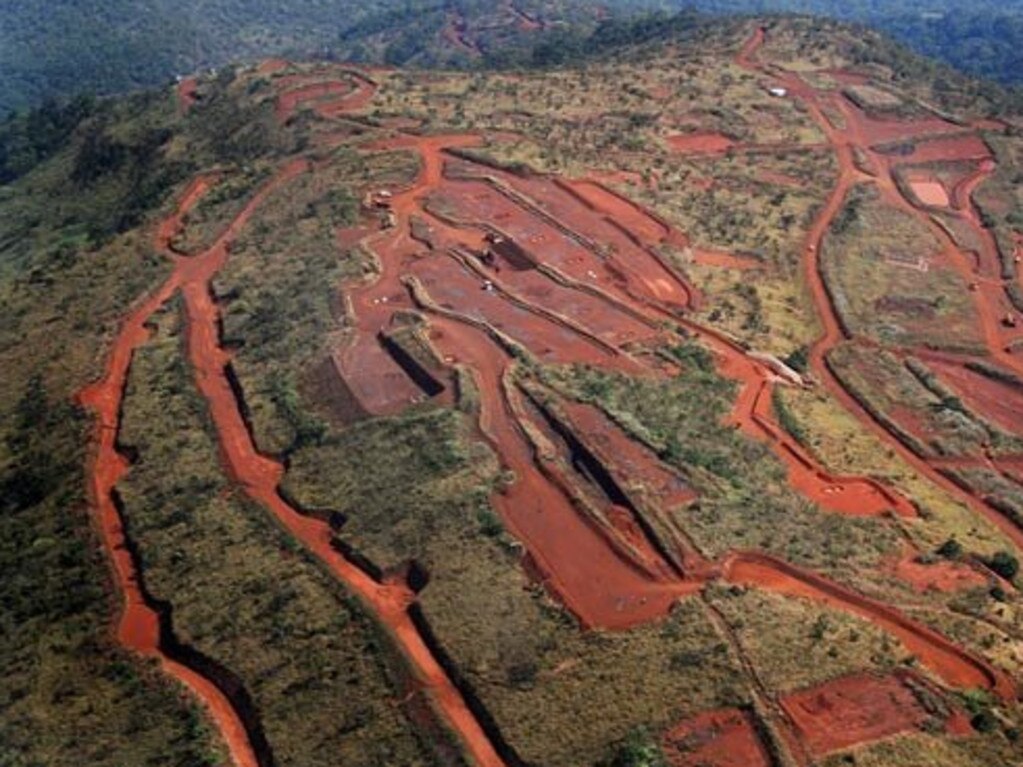China’s iron ore appetite ‘buffering’ economy during crisis
Iron ore demand in China since the beginning of the COVID-19 pandemic is ‘buffering’ the Australian economy.

Iron ore demand in China since the beginning of the COVID-19 pandemic is “buffering” the Australian economy from the worst of the global economic hit and ensured a $293bn record in resources exports this year.
As pressure mounts on re-opening the Australian economy, dropping border restrictions and allowing workers and tourists greater movement because of job losses and lockdowns, the resources sector has maintained high employment and record exports and underpinned growth.
Although the latest official resources analysis has dropped the forecast of all mineral and resources exports for 2019-20 — from $299bn to $293bn because of the coronavirus crisis — employment levels remain higher than all other sectors.
Iron ore exports are still on track to exceed a record $100bn in one year and Australia is forecast to overtake China next year as the world’s biggest gold producer.
Job losses during the global pandemic in mining are half that of all other industries and the level of employment for women and young people has not dropped in contrast to high rates of job losses in other sectors. In Western Australia, the number of mining jobs rose by more than 1500 to 111,533 during the pandemic.
Reduced global industrial activity, including in China, and drastic cuts to airline travel has dramatically hit the price of coal and oil, with a big impact on international gas prices, but cuts in production around the world because of the coronavirus means Australian coal export volumes continue and iron ore and gold will rise.
The June quarter analysis of the Department of Resources found ‘‘the current global downturn is affecting commodities in a wide variety of ways, but the overall export outlook is still relatively strong”. “Export earnings are estimated to set an all-time record in 2019–20. Gold, a safe haven in uncertain times, is set to be a strong performer, with prices surging to an eight-year high, and export earnings now on track to set a new record of almost $32bn in 2020-21,” the report said.
“Resource and energy earnings will be almost 50 per cent higher — in real terms — than during the global financial crisis.’’
Resources Minister Keith Pitt said the resources sector would continue to buffer the economy from the global impact of the COVID-19 crisis. “Resources has always been a key contributor to Australia’s economic success and it’s now playing a vital role in protecting the country from a much more severe downturn,’’ Mr Pitt said.
“The IMF confirmed Australia is weathering the coronavirus pandemic economic storm better than most countries and we have the resources sector to thank for that. While not totally immune to the COVID-19 downturn, employment in the resources sector has been holding up well compared to the rest of the economy.
“As we emerge from the COVID-19 economic downturn, our focus will be firmly on job creation, particularly for younger Australians and the resources sector is well positioned to play its part,” he said.








To join the conversation, please log in. Don't have an account? Register
Join the conversation, you are commenting as Logout